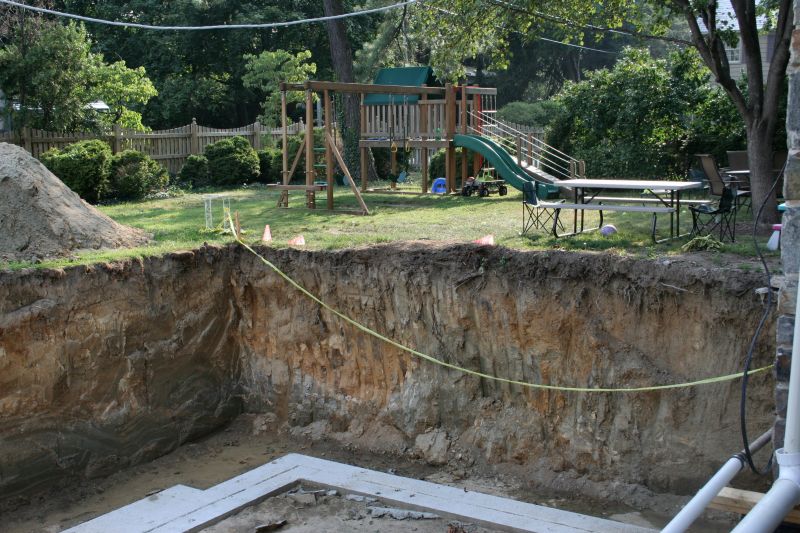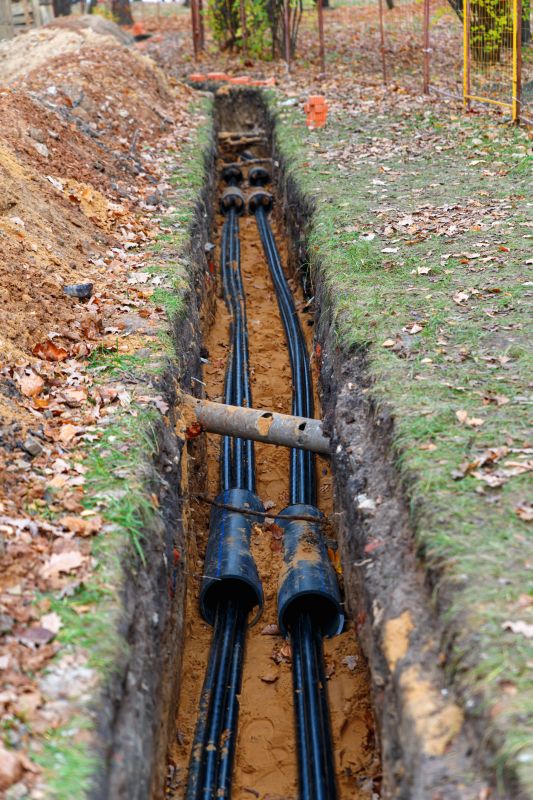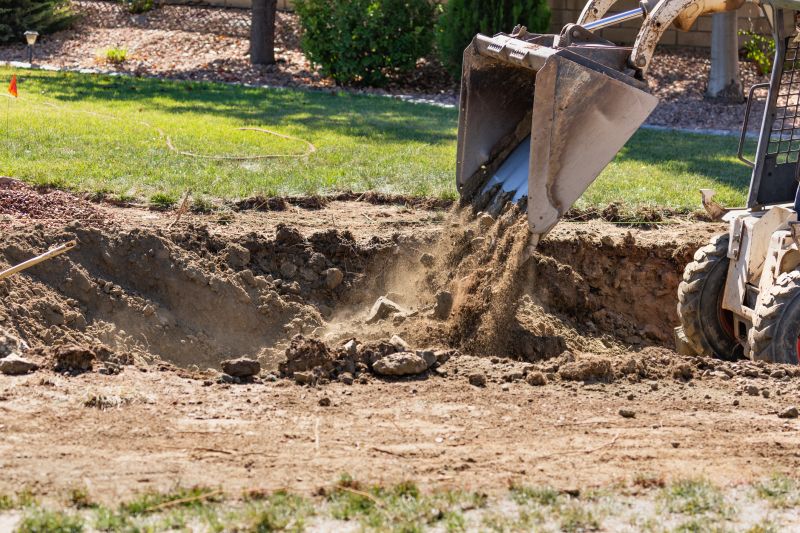Underground Utility Excavation for Infrastructure

Preparation involves clearing the area, setting up safety measures, and marking boundaries to ensure efficient excavation work.

Heavy equipment such as excavators and bulldozers are used to remove soil and rock, enabling access to the construction or archaeological site.

Finished projects showcase precise excavation work, revealing foundations, basements, or archaeological findings.
Excavations are fundamental to construction, archaeology, and land development. They involve the removal of soil, rock, or debris to create foundations, trenches, or uncover buried artifacts. Proper planning and execution are essential to ensure safety, efficiency, and accuracy during the process. The size and complexity of excavation projects vary widely, from small residential trenches to large-scale infrastructure developments.
Statistics indicate that excavation projects can take anywhere from a few days to several months, depending on scope and site conditions. Professional excavators typically spend significant time on site preparation, equipment setup, and precise digging to meet project specifications. Advanced technology, such as GPS-guided machinery and soil analysis, enhances accuracy and reduces project timelines.
The timeframe for excavation depends on project size, soil type, and site accessibility, ranging from days to months.
The process involves site assessment, planning, obtaining permits, equipment mobilization, excavation, and site cleanup.
Professional excavators ensure safety, precision, and adherence to project timelines, reducing risks and potential delays.
Choosing a professional for excavation work offers numerous advantages. Experienced operators utilize advanced equipment and techniques to maximize efficiency and minimize errors. They also understand local regulations and safety standards, ensuring compliance throughout the project. Properly executed excavations lay a solid foundation for subsequent construction phases and help avoid costly mistakes.

This stage involves digging trenches and holes necessary for building foundations, ensuring stability and proper load distribution.

Excavations facilitate the installation of utilities such as water, sewer, and electrical lines beneath the surface.

Post-excavation work includes leveling and grading land to prepare for construction or landscaping projects.
The final phase of excavation often involves backfilling and restoring the site to its intended condition. Completed work demonstrates precision and adherence to project plans, ensuring structural integrity and safety. Visual evidence of successful excavations highlights the importance of skilled workmanship and proper planning.
For those seeking to undertake excavation projects, obtaining a detailed quote is essential. Filling out the contact form provides an opportunity to discuss project specifics, timeline, and budget considerations. Professional excavation services deliver reliable results, supporting the successful completion of construction and development endeavors.



